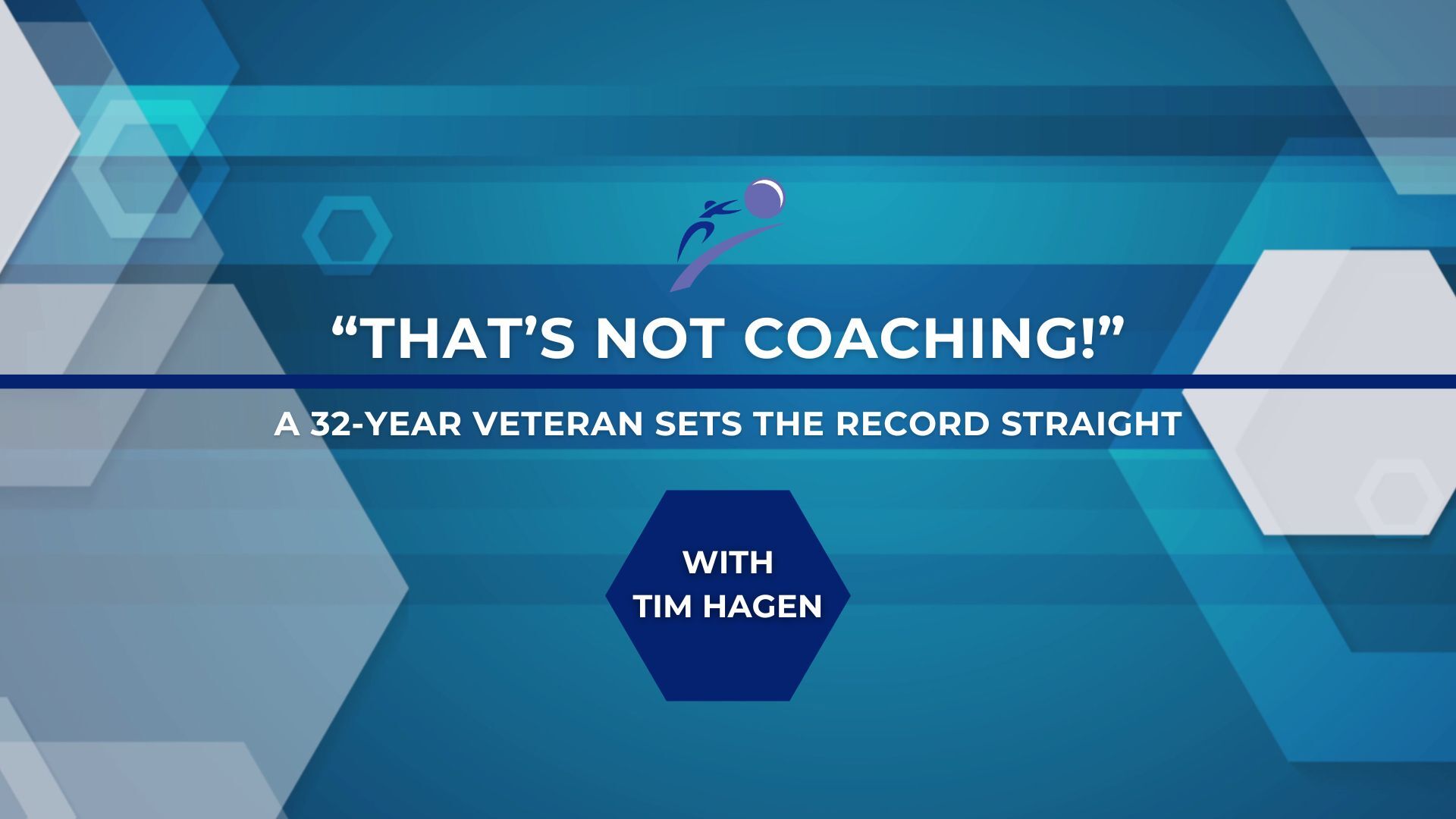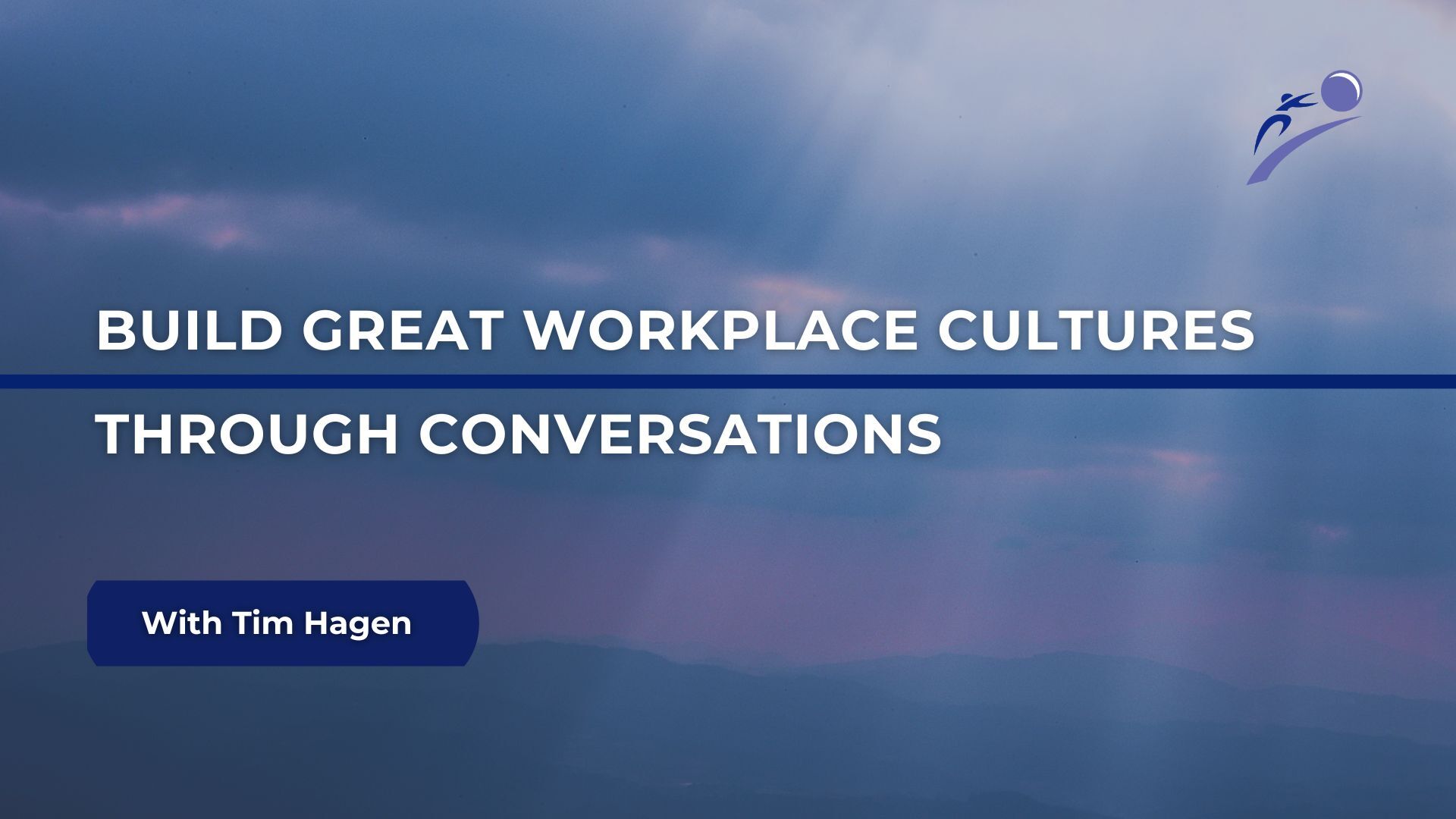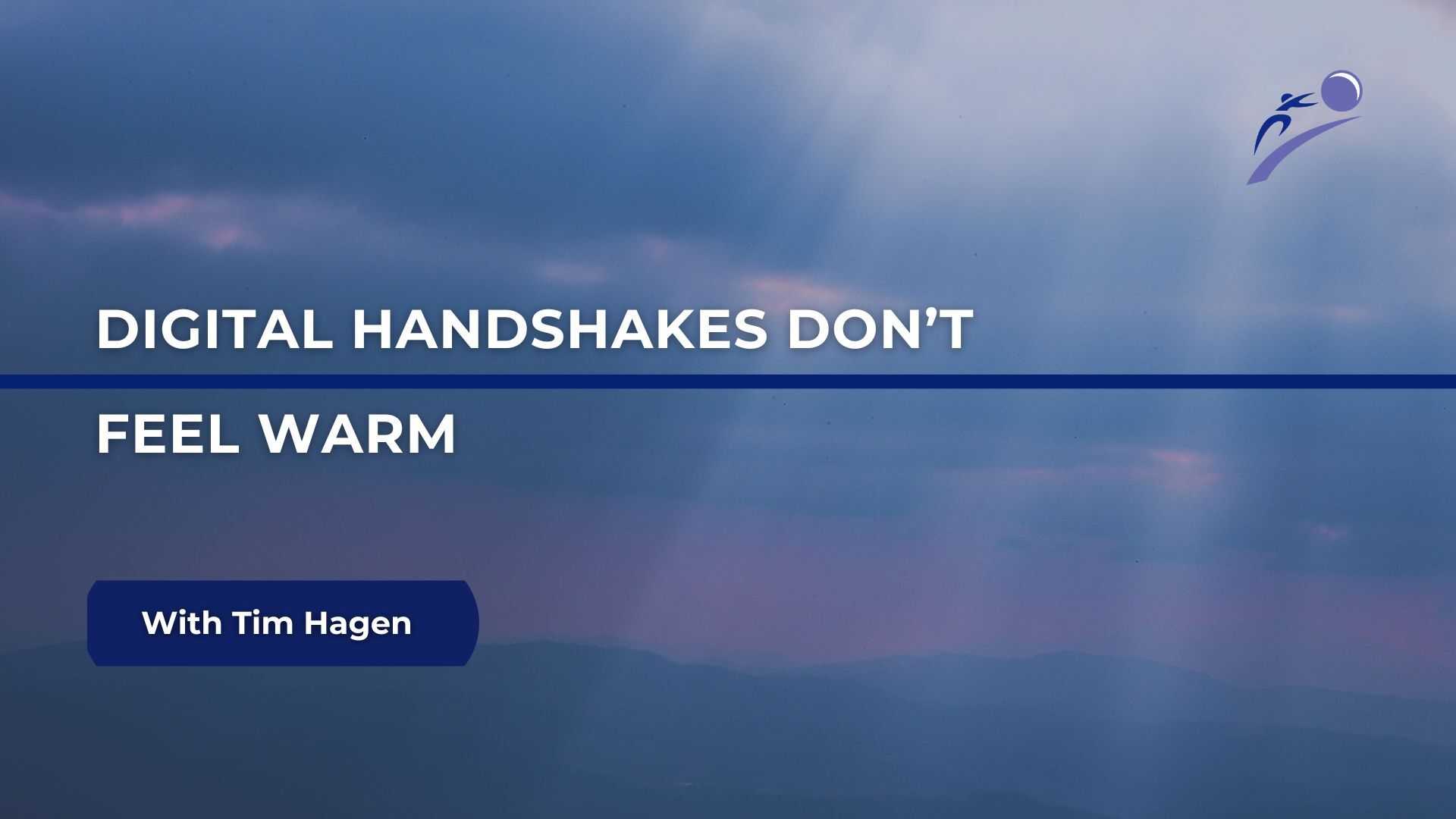When you think about conflict, or confronting someone, does it make you nervous? Doesn't it make a lot of people nervous? I want to share a notion with you that conflict, in certain moments, can be unbelievably healthy. Let me give you a couple of examples.
One of the things we talk about in leadership is trust. Our mantra is, "We've got to build trust!" But, let's say you're in a meeting, and someone is really being rude to another person, and you know this guy is your typical jerk. He won't listen, and we kind of convince ourselves, "What's the use, Bob's always like that," and we walk away. Let's say Bob was being abusive potentially to a woman. Maybe he was being chauvinistic. Now, you know that's Bob being Bob. Haven't we heard that before? "Well, that's just the way he is. He's always been like that," which translates to non-verbal permission for Bob to continue to treat other people like that.
So, when you're a leader in that situation and you don't speak up, what do you think happens to the people around you? What do you think happens to the person that Bob was addressing? Do they trust you more? Probably not. Do they trust you less? Maybe. Are they wondering why you didn't speak up? Probably. So it's tough, right? What do we do? How do we have these conversations?
I'd like to give you five words we teach from our Coaching To Confront course: We, share, opportunity, perspective, and observation. Let me share the strategy behind each one of those words. We, we're in this together. Share, it's a friendly way to disseminate information. Opportunity is where they have an opportunity to improve. Perspective and observation are neutral.
The goal of confronting someone isn't to use profanity. It isn't to bloody their nose. It's to give them a decision to make, to give them friendly, thoughtful perspective.
Now, when we think about the water cooler, when was the last time you heard a really healthy, fun, and motivating rumor at the water cooler? When was the last time you walked by the water cooler with three people talking about, "Boy, that marketing department, those are happy people. Got to love them." Please tell me you're laughing. The reason we go to the water cooler, coffee room, cafeteria or a break room is to talk about other people is because we have an inability and insecurity, a lack of knowledge of how to address other people successfully.
See, when we confront thoughtfully, really what confrontation is about is building healthy awareness, giving someone else an opportunity to not only gain perspective, but to improve. To walk away from people like Bob from our earlier scenario, all that does is let Bob think, "There's no problem." But I'm not saying look for the fight. What I'm saying is become skilled at the language of how to have those conversations.
One of the things that I do in those situations, and this is my style, I would stand right next to Bob and say, "Bob, I got to tell you something. Is your goal an opportunity here to build a positive perceptions of you? Because I'm wondering what's going through Julie's mind right now." And I'll use humor, but I'm giving him a choice to back up. If he continues, I might look at Julie and say, "Julie, would you give us a second?" I might pull him aside and say, "Bob, I got to ask you something. When you're talking to her, what's your objective?" "What do you mean?" "Well, what's your objective?" "Well, nothing, I'm just having a conversation." "Okay, would you mind if I share something with you?"
Now I'm going to give you a strategy called perception over intent. "What I'd like to share with you, Bob, is the perception is you're coming off extremely chauvinistic. I'm not saying that's your intent, and I think you have an opportunity to resurrect that with Julie and really, quite frankly, have a conversation that's more thoughtful. And I think that perspective and observation will put you two more on a level playing field."
I share that with you not to be a show off. I share that with you that in the moment, I'm 100% comfortable. See, when we're uncomfortable with conflict, we avoid it. So what do we do? We continue to gripe about the same people who do the same things.
So, one of things I want to share with you is I coach a boys' volleyball team. One night after our team pictures, the kids left the gym and came back in after taking off their uniforms. They all came out wearing T-shirts with my face on it. And I looked up and I just broke out laughing. And I thought, "What a great prank." So, it became kind of this funny thing, with opposing coaches asking for T-shirts after seeing it on Facebook. So, we started to give them away to opposing coaches, a lot of whom are my friends and people I coach within club volleyball. It became this really fun thing.
Now, the captain of our team decided to do this, and I asked him, I said, "Well, who's paying for this stuff?" He said, "Well, I am. It's, like, five bucks a shirt." I said, "Oh, my gosh, let me cover the cost." That is the only financial transaction that has occurred. So, about a month goes by, and I'm in a grocery store where I'm standing behind two women who evidently bump into each other. They start to have some niceties and say, "How are you? How's the family?" The first woman said, "Did you hear about the boys' volleyball coach?" And I am literally within an arm's length of both women. They're talking about me. The first woman says, "This arrogant expletive made these kids put his face on a T-shirt so he could sell them for money. What a jerk."
Now, you must be thinking, "Oh, my gosh, Tim. What did you do?" I was in heaven! I have a wonderful opportunity. I'm at the water cooler right there with them. They don't even know it. The second woman said, "Really? That's terrible." Cashier looks up. "I can't believe somebody would do that." She goes, "Really?" And the first woman goes, "Yup. That's what I heard. That's what I heard."
So I leaned forward and I said, "Is that true?" She said, "Yup. I heard it from a good friend in that community." I said, "Oh, I heard something different." She says, "You did?" And I said, "Yeah. I heard that the kids did it as a prank and that they have such a good relationship with the coach, they were comfortable doing that." She goes, "Nope, that's not what happened. My friend told me." I said, "Oh, I heard it from someone different." And she said, "Oh, who'd you hear it from?" I said, "The boys' volleyball coach." She asks, "Oh, do you know him?" I respond, "Hi, I'm Tim Hagen, head volleyball coach at Cedarburg High School."
And I just stared. I smiled. Now the cashier, holy cow, she's bagging those groceries as fast as she can. She's not lifting her head. She's done. She's out of the conversation. The first woman? Jaw is on the ground. I said, "Ladies, I ... first of all, I'm sure I'm now coming off like an arrogant jerk, but I have to tell you, I really appreciate this conversation." And I looked at the first woman. I said, "I think I know the name of your friend, but I won't put you on the spot. I think her name is, I don't remember, I don't know, right?" She's red. The second woman's not looking at me.
I said, "Ladies, I think we have a wonderful opportunity here." The first woman said, "What is that?" And I said, "Well, quite frankly, out of the three of us, only one of us knows the truth. The only money that changed hands is when I wanted to give money to my captain so he wouldn't lose money because it was a prank. I never asked these kids to do it. We've never sold one T-shirt. That is absolutely the truth. It is indisputable. It's non-negotiable. There is no way in heck we have sold one T-shirt. So you have a wonderful opportunity to share with your friend this perspective. Ladies, I'm not mad. I apologize for putting you on the spot, but sitting next to you and being called that name, you've been given some false information. That is without dispute."
The first woman just nodded at me, got her groceries, and walked out. The second woman, as she got her groceries, turned around and she said, "I really apologize that that just occurred." And said, "Do you know what? I think it's a very healthy thing." I said, "I don't think your friend is a bad person. I'm sure she's a wonderfully nice person, but what she did in the public, she has a responsibility for. And ironically, I'm standing right here. She could not factually be farther from the truth. There was not one ounce of truth in anything that she said."
So, these opportunities present opportunities to not have rumors, to not have these innuendos, to not have false information. We hear it all the time with Facebook. False advertising, false news. When you're in the moment of conflict, I was healthy with that.
Now let me ask you a question. Would you have been comfortable in that moment? Would you have just walked away? Would you have bit your tongue? But here's the big question. Don't you agree that that first woman's going to think really hard the next time she's in that grocery store? She's going to think really hard about sharing some information she heard? She probably doesn't like me right now, but I believe in my heart, I actually helped her. For me not to say anything, what do you think would happen with that rumor? I mean, the rumor would have gotten worse.
So, remember, moments of conflicts can be very healthy. I hope this has been helpful. Let know your thoughts below, what would you have done?





